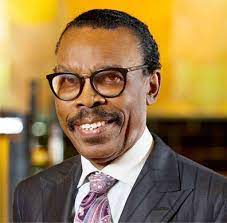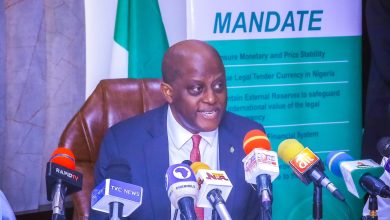From Death Trap to Debt Trap – Journey to Economic Salvation or Stagflation

by Bismarck Rewane •
Most economists believed that the worst was over as far as sovereign debt defaults in sub-Saharan Africa (SSA) were concerned. Not until the recent protests in Kenya turned the conventional logic of debt refinancing on its head. Kenya and William Ruto were the poster boys of refinancing using the typical IMF model of increasing tax revenue to finance budget deficits. He was welcomed at the White House as an example of economic transparency and plural democracy. But the poor man on the street in Nairobi and Mombasa said not so soon. What looks good in Washington, D.C. may be ugly to the guys living on a shoestring in the game reserves of rural Kenya.
Nigeria’s Road to Economic Recovery or Distress
In Nigeria this month, the theme of our discussion at the breakfast session is the road from a death trap to a debt trap, the journey of economic salvation of a fragile economy. We define Nigeria as a resource-rich and cash-poor economy mired by poverty, a spiralling cost of living crisis and government fiscal spending that is out of control. Many national debt figures are being bandied around as there are variants of insects in a garden. Analysts are likely to need clarification, depending on the data source. In its latest release, the Debt Management Office (DMO) puts Nigeria’s total debt stock at an all-time high of N121.67trn (US$91.46bn) as of March 31, 2024. It goes further to confirm that Nigeria’s debt-to-GDP ratio was 52%. This compares favourably with an average of 60% in most SSA. The average Nigerian is confronted with an unbearable cost of living crisis, compounded by the palpable fear of insecurity and kidnapping.
Fiscal Adjustments Have Unintended Consequences
Approximately four years after the EndSars riots, Nigeran policymakers are very sensitive to the dangers of street riots spinning out of control. Never in the history of Nigeria has food inflation been such a flash point. The major stoking factors of inflation, even though easing modestly, are not enough to soothe the nerves of urban and rural Nigerian dwellers. The big elephant in the room is the new minimum wage, which could send the country down a slippery slope. Nigeria must avoid a wage crisis and disorderly protests. Thankfully, the exchange rate has stabilised at N1,525-N1,550/US$. The differential between the parallel and official rates is N10/US$. The PPP value of N973/US$ shows an official undervaluation of 38.26%. The price of diesel, the major input for logistics, is steady at N1,220 per litre but is climbing slowly again. We project that inflation will creep up to 34.09% in June.
In this edition of the LBS breakfast session, Bismarck Rewane and the FDC think tank effectively evaluate the risks of economic reform and policy change as a threat to political stability in Nigeria, especially the effect of the geostrategic impact of the election results in France, Britain, and the EU on investment inflows into Nigeria.





